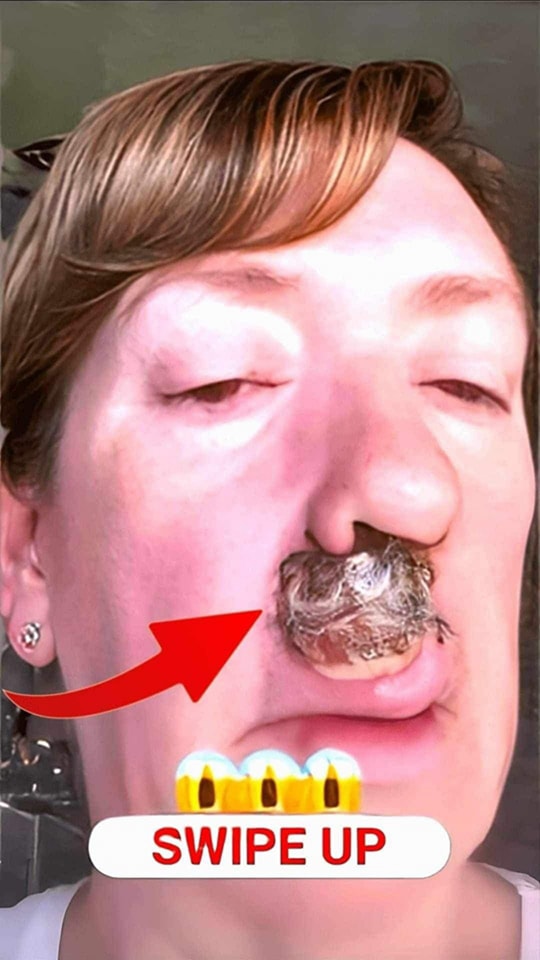
According to Dr. Nguyen Tien Thanh (BSCKII), not all pimples can be treated at home. Improper pimple popping can lead to scarring, aesthetic damage, and even severe infections with serious complications.
A notable case is that of L.T.T., a 23-year-old woman from Dong Anh, Hanoi. She manually popped her pimples, resulting in an abscess on her cheek, swelling around the nose and cheeks, and eyelid swelling, severely affecting her daily activities and work.
The patient reported that after noticing itchy pimples on her cheek, she used a needle to puncture and squeeze the pimples, then applied traditional herbal medicine to draw out the pus.
After four days of self-medication, her condition worsened, with mild fever, severe swelling on one side of her face, and painful, pus-filled pimples spreading to her eyes and nose.
Despite further self-treatment with over-the-counter anti-inflammatory drugs and traditional remedies, the swelling worsened, particularly in the cheeks and eyelids, leading to fatigue, pain, and sleeplessness. Concerned about her facial condition, she sought medical attention.
Why Improper Pimple Popping Can Be Dangerous
Dr. Nguyen Tien Thanh diagnosed the patient with an abscess on her right cheek, with swelling extending to her forehead and right eye.
“Abscesses typically manifest as swelling, warmth, redness, and pain. Sizes can range from 1 to 3 cm or larger. Initially, the area is firm due to inflammation, but as pus forms, the skin becomes softer and may rupture, releasing pus. If left untreated or improperly treated, necrosis of the skin can occur, posing a significant health risk,” explained Dr. Thanh.
When You Should Avoid Popping Pimples
Dr. Thanh emphasizes that many patients underestimate the risks of improper pimple care. Incorrect techniques and unsanitary practices can lead to extensive abscesses, permanent scarring, and even life-threatening blood infections.
People should never pop pimples if they show signs of swelling, warmth, redness, and pain—especially in the central facial region, like the nose. Unsanitary hands and incorrect methods can lead to dangerous infections.
“With patient T., we performed pus drainage procedures and cleaned the affected skin area daily. In addition, the patient was treated with laser and light therapy to reduce inflammation and minimize scarring, combined with topical medications to control the infection,” said Dr. Nguyen Tien Thanh (BSCKII).
After a week of intensive treatment, T.’s condition improved significantly. The pus was gone, facial swelling subsided, and the damaged skin began to heal. However, the abscess area remained darkened, with a risk of future scarring.
Dr. Thanh emphasized that individuals who develop painful, swollen, red pimples on their face, especially those causing swelling in surrounding tissues, should seek medical attention at specialized dermatology clinics. Early intervention is crucial to prevent severe complications. Self-medicating with antibiotics is not recommended.
“To lower the risk of developing acne or boils, it’s important to keep the skin clean and avoid unnecessary bacterial exposure. Never attempt to pop pimples when they’re still painful and swollen, and try to minimize touching your face,” Dr. Thanh added.
This SEO-optimized content highlights the importance of proper acne treatment, encouraging readers to prioritize professional care over self-treatment to avoid complications and scarring.



